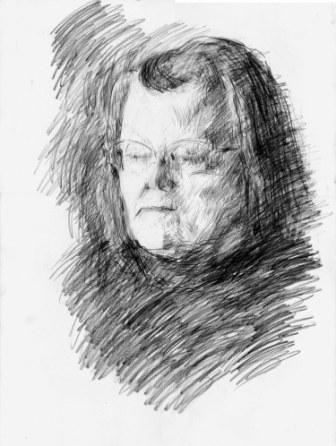I have wondered about the profound change that came over me when I had my first baby. No woman expects this, and it is impossible to convince anyone until it has happened to them. One woman, who had expected to be able to go right back to work after her baby was born, said to me, “They told me I would be able to have a family and a career. But they lied.” When I read The Female Brain this change was made clear to me. “Motherhood changes you because it literally alters a woman’s brain—structurally, functionally, and in many ways, irreversibly.” For example, at the birth of her baby huge doses of the hormone oxytocin are released into the mother’s body, and the hormone is maintained by the physical connection to the baby. This hormone gives a woman a great high. When the physical connection is severed the hormone decreases and the stress of the lack is great. The oxytocin is further stimulated by holding other babies. I could have sat still holding my grandchildren for hours, the pleasure was so great. There is no joy comparable. The profound change of giving birth also affects the way a woman views the world, altruistically. I am simplifying the book of course.
But what happens as the woman gets old? These hormones dissipate; there are no more grandbabies or they live far away. And the great revelation for me in reading the book is why I no longer feel as if I want to take care of everyone. This deficiency has been making me feel guilty. When I read the chapter “The Mature Female Brain”, I thought, Eureka, yes this is how I feel and why I feel this way. This is why some post menopausal women fly the nest. In tracing my way from birth, I find I am now in an amazingly different frame of mind, wanting to look after myself, do things I want to do. I remember thirty years ago I was driving for meals on wheels, tending to every forlorn creature in sight, reading manuscripts for all sorts of people. At one point I realized I was burning myself out. In fact, I landed in the hospital.
The idea that women aren’t different from men (“biology is not destiny” is one way it is put) has always seemed to me to be ridiculous. How could they not be different, built so different, with such different hormones. One day after I had gone through menopause, I thought, in a flash of insight, This is the way men feel – no changes, no PMS, always the same. It was wonderful.
I have read three reviews of The Female Brain, one a so-so review and two slams. The reviews concentrate on Louann Brizendine’s use of generalizations of the pop culture variety, with no real scientific back-up. Women are more social, talk more, that sort of generalization. I ignored that part of the book. What I found so interesting was the more scientific account of the hormones in different stages of a woman’s life. Yes, it is true that her imagery was a little over the top: the woman’s brain was “marinated” in the hormones, for example. I don’t think women are better, more social, talk more, etc. but I do think there are probably reasons that there are not many women composers but there are many women novelists. Women are different from men, and the “political correctness” that makes it impossible to say that aggravates me.
Saturday, October 14, 2006
Subscribe to:
Post Comments (Atom)

2 comments:
I'm afraid I will have to disagree.
http://www.timesonline.co.uk/article/0,,2087-1785359,00.html
Your own individual experience may vary wildy, of course.
I suspect that the difference is a matter of degree and not an absolute, and I do agree that in some profound way, women and men are different. What the algebra of culture and biology are, I don't know, but a difference is there.
Fortunately, so is what we have in common.
Post a Comment